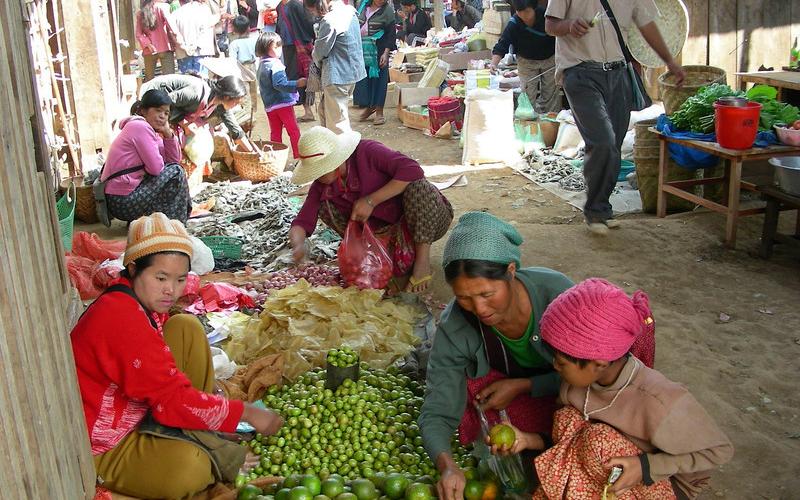Rehabilitation and upgrading essential infrastructure in the North Rakhine State
Duration: February 2002– December 2005
Budget: US$850,569
Implementing Agencies: WFP
The Northern Rakhine State (NRS) is considered one of the most vulnerable areas of Myanmar. The remote, isolated, and densely populated area is subject to seasonal heavy rainfall and tropical storms, which contributes to and exacerbates already high rates of diarrhea and worm prevalence due to poor access to clean potable water. Malnutrition rates for children under five are high and access to high-quality healthcare services is limited. Educational rates are also lower than in other parts of the country. All these factors can adversely affect the livelihood of the population, particularly women and children.
The main objective of this programme is to improve the socio-economic situation of the rural population by enhancing access to basic and essential services while providing seasonal labor opportunities to vulnerable groups. Specifically, the programme: (i) enhances livelihood opportunities by constructing and renovating infrastructure geared at improving access to markets, healthcare facilities, and other essential services; (ii) strengthens health security by increasing sources of potable water in the villages and building capacities of local communities on hygiene education; and (iii) increases access to education by improving classroom, and water and sanitation conditions in primary schools.
KEY MATERIALS

